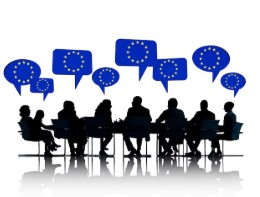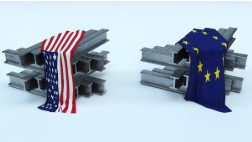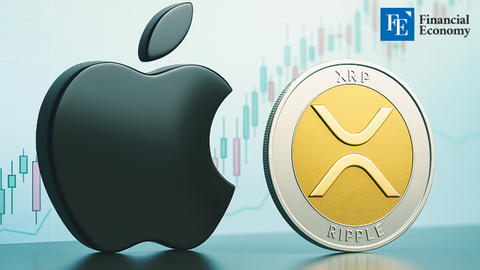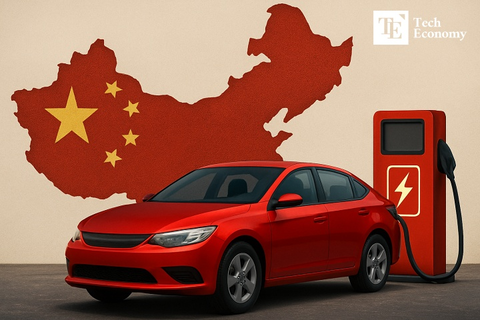Trump and Putin’s Talks: A Turning Point for Europe’s Security?
Input
Modified
The Trump-Putin Call: What’s at Stake? Europe’s Growing Fears of Being Sidelined The Future of U.S.-Europe Relations in an Uncertain Geopolitical Landscape

The Trump-Putin Call: What’s at Stake?
In the constantly evolving landscape of global politics, one of the most watched and often controversial relationships is the dynamic between the United States and Russia. Former President Donald Trump’s political dealings, particularly his rapport with Russian President Vladimir Putin, have long been a topic of intense scrutiny. Recently, as Trump announced a scheduled phone call with Putin, much of the world’s attention turned to the expectations surrounding this dialogue. What exactly will be discussed? And more importantly, will the agreement reached between Trump and Putin be enough to address the growing concerns within Europe?
These questions are far from simple, especially given the historical context of US-Russia relations and the broader geopolitical implications of their discussions. For Europe, the outcome of these talks could have a profound impact on their security and standing on the world stage, with potential consequences that stretch far beyond the two leaders themselves. As Trump and Putin prepare to speak, it is crucial to understand the broader implications of their meeting, particularly in the context of the ongoing tensions surrounding Ukraine and the shifting power dynamics in Europe.
When former U.S. President Donald Trump announced his scheduled call with Russian President Vladimir Putin, the world’s attention naturally turned to the possible outcomes of their discussion. In the lead-up to the call, Trump stated that “many elements” had been agreed upon between the two leaders. This cryptic comment left many wondering what specific agreements had already been made, and whether they would be enough to ease the ongoing geopolitical tensions surrounding Russia’s actions in Ukraine and its broader influence in Europe.
The specifics of these “many elements” remain unclear, but based on past interactions and Trump’s previous foreign policy approach, one can infer a few possible areas of discussion. Given the context of Ukraine, Trump’s relationship with Putin has been of particular concern, as his administration had been criticized for being too lenient toward the Russian leader. The question on many people’s minds is whether Trump will push Putin on specific issues, such as the ongoing conflict in Ukraine, or whether he will offer a softer approach—one that could be perceived as favorable to Russia.
While Trump’s agenda for the upcoming phone call remains somewhat ambiguous, there are clear indications of what Putin may be looking for in his discussions with the former U.S. President. According to reports, Putin’s demands for a ceasefire in Ukraine and his broader stance on Europe’s role in the conflict are crucial components of the conversation.
Putin has consistently maintained that the West, particularly European countries, has been complicit in the escalation of tensions by supporting Ukraine’s sovereignty and providing military aid. The Russian leader has long called for the West to stop arming Ukraine, viewing these actions as direct interference in Russia’s sphere of influence. For Putin, any agreement with Trump could serve as a way to further isolate European nations, while cementing Russia’s influence over the situation in Ukraine.
This potential shift in diplomatic dynamics has profound implications for Europe. If Trump and Putin were to reach an agreement that marginalizes European input, it could have long-lasting consequences for European security. Many European leaders, particularly in Eastern Europe, have voiced concern about Russia’s growing aggression and the possibility of further incursions into neighboring territories. For these nations, the fear is that any deal between Trump and Putin could come at their expense, leaving them vulnerable to Russian influence.

Europe’s Growing Fears of Being Sidelined
As the conversation between Trump and Putin continues to unfold, one thing is clear: Europe, despite being at the center of many of the current geopolitical tensions, risks being sidelined in discussions that directly affect its security. With Trump and Putin talking, European leaders are left to watch from the sidelines, uncertain about the future of their region and the potential ramifications of any agreement reached between the two leaders.
European officials, particularly in countries like Estonia, Latvia, and Lithuania, have expressed their unease about any potential agreements that might be made without their input. These countries, which have long been wary of Russian aggression, fear that a deal between Trump and Putin could further isolate them from the decision-making process surrounding their own security.
The notion that Europe could be sidelined in its own security matters has created a growing sense of frustration and mistrust. In the past, Europe has relied on strong diplomatic ties with the U.S. to counterbalance Russian influence. However, the Trump administration’s “America First” policy, combined with his sometimes ambiguous stance on NATO, led many in Europe to question whether the U.S. could still be counted on as a reliable ally.
As the tension surrounding the upcoming Trump-Putin meeting continues to build, European leaders have increasingly voiced their concerns. Kaja Kallas, the Prime Minister of Estonia, expressed her skepticism ahead of the call, warning that "Russia can't really be trusted." Her comments highlight a broader sentiment in Europe, particularly in Eastern Europe, where countries are acutely aware of the dangers posed by Russia and its aggressive actions in Ukraine.
Kallas’s warning is not without merit. Over the past decade, Russia has shown little regard for international norms, particularly in its annexation of Crimea in 2014 and its ongoing support for separatist movements in Eastern Ukraine. For countries on the European periphery, such as the Baltic states, Russia’s actions are a direct threat to their sovereignty and security. These nations are looking to the U.S. for support, but as Trump prepares for another discussion with Putin, there is growing uncertainty about whether that support will materialize in a meaningful way.
Moreover, Europe’s relationship with Russia is further complicated by the diverse political landscape within the European Union. While nations like Poland, the Baltic states, and the U.K. have been vocal in their opposition to Russia’s actions, countries like France and Germany have taken a more diplomatic approach, often advocating for engagement and dialogue with Russia. This divide within Europe only serves to add complexity to the situation, as the continent tries to present a unified front in its dealings with the Kremlin.

The Future of U.S.-Europe Relations in an Uncertain Geopolitical Landscape
The current situation underscores the crucial role the U.S. plays in European security. For many European nations, especially those in Eastern Europe, the U.S. represents a necessary counterbalance to Russian aggression. However, the uncertainty surrounding Trump’s approach to these issues has created a sense of unease in Europe.
During his presidency, Trump’s stance on NATO and European security was often seen as unpredictable. His critical remarks about NATO, coupled with his desire to forge a closer relationship with Putin, led many in Europe to question whether the U.S. would continue to act as a reliable partner in maintaining regional stability. The upcoming conversation between Trump and Putin will likely serve as a further test of U.S. commitment to European security. If Trump were to reach an agreement with Putin that bypasses European concerns, it could signal a shift in the U.S. approach to the region—one that would have significant consequences for the future of NATO and European defense.
As Trump and Putin prepare for their phone call, the eyes of the world will be watching closely. For Europe, the stakes are high, with the potential for the region to be sidelined in its own security discussions. The outcome of this conversation will have significant implications for European countries, particularly those on the front lines of Russia’s aggression. If Trump and Putin can reach an agreement that addresses Europe’s security concerns, it could lead to a more stable and cooperative relationship between the U.S. and its European allies. However, if Europe feels that its interests are being disregarded, it could lead to further fragmentation within the Western alliance.
The Trump-Putin meeting is more than just a conversation between two leaders; it is a critical moment that could shape the future of global security, particularly in Europe. As the situation continues to evolve, Europe’s role in its own security will remain uncertain, and the impact of this dialogue between Trump and Putin will likely echo for years to come.





















